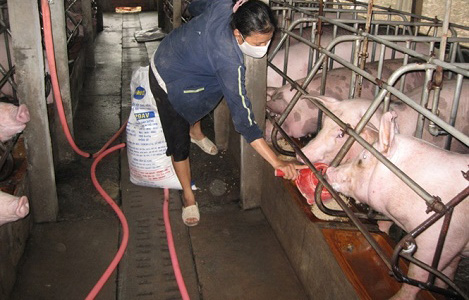The ratio of individual animal farmers has significantly declined in the southern province of Dong Nai in the last two years, with foreign-invested companies often replacing them.

The ratio of individual animal farmers has significantly declined in the southern province of Dong Nai in the last two years, with foreign-invested companies often replacing them.
Dong Nai is a southern animal husbandry centre with 50,000 farming households, but the situation has changed since late 2016 as pork prices plummeted. Since then, pig prices have not recovered while costs have kept increasing, pushing many husbandry households into bankruptcy.
To mitigate the situation, the Ministry of Agriculture and Rural Development and other authorities plan to review and amend the development master plan for the industry, and encourage households to have a closed production chain to control input quality and enhance value. However, the relentless decline in pork prices has not allowed these solutions to be implemented and thousands of households have quit for good.
According to the local agriculture department, the number of sows in the province reduced by 24,000 in the last few months to 290,000.
“However, the number of female pigs is still high,” one official said.“They could deliver 5.8 million piglets each year, one million more than the demand.”
But foreign-invested companies have begun to invest in the local husbandry sector. Thailand-based company CP raises 7.25 million meat pigs a year and accounts for all the sows in the province,.
The company supplies 40-45 per cent of all the pork sold in the southern region, and each time it changes prices the entire market has to follow suit.
“The husbandry market trend is hard to predict, but due to losses in the last two years households have been the first to quit followed by small- and medium-sized farms, even big ones,” Pham Duc Binh, chairman and CEO of the Thanh Binh Ltd Company told Phu Nu (Women) newspaper. — VNS





